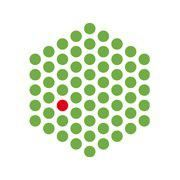 Structural bioinformatics
Structural bioinformatics
Date: 16 - 20 September 2019
Structural biology, determining the three-dimensional shapes of biomacromolecules and their complexes, can tell us a lot about how these molecules function and the roles they play within a cell. Bioinformatics data derived from structure determination experiments enables life-science researchers to address a wide variety of questions. For example, it aids the understanding of how mutations in a gene might alter a protein’s shape, disrupt a catalytic site, or alter the binding affinity of a pharmaceutical compound.
This course explores bioinformatics data resources and tools for the interpretation and exploitation of biomacromolecular structures. It will focus on how best to analyse available structural data to gain useful information given specific research contexts. The course content will investigate the impact of genetic variation on structure, predicting protein structure and function, and exploring interactions with other macromolecules as well as with low-MW compounds. Participants will also have an opportunity to explore protein docking using HADDOCK.
Venue: European Bioinformatics Institute Hinxton
Region: Cambridge
Country: United Kingdom
Postcode: CB10 1SD
Target audience: This course is for biological researchers who want to learn more about the application of structural information in their work and how to use some of the key bioinformatics resources that are available. No previous experience in the field of structural bioinformatics is required, however a basic knowledge of protein structure would be of benefit. Participants should be familiar with basic Linux operations - http://www.ee.surrey.ac.uk/Teaching/Unix/ - and have some experience of bioinformatics tools and databases.
Capacity: 30
Activity log

 EMBL-EBI
EMBL-EBI
